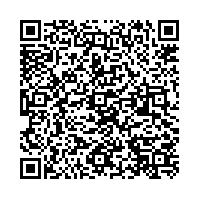Fear in the story of prophet "Moses" peace be upon him. Objective, analytical study
DOI:
https://doi.org/10.25255/jss.2020.9.4.1320.1338Anahtar Kelimeler:
The story of Moses- FearÖzet
Fear is considered as an innate instinct of the human being created on it, and since this innate instinct has a great impact on a Muslim in his behavioral and advocacy activities on himself as well as on society, thus the Qur'anic stories had a great role in highlighting and explaining the way how to deal with it in all conditions and the activities of the Muslim, on top of these stories is the story of "Moses" peace be upon him. Thus and starting from this fact, came the idea of this research to show the effect of the instinct of fear based on the approach of the prophets and messengers being the best example for all humans, and how to deal with it ــ The Great Allah said: (You have had lessons in their stories) ]Yousef : 111[ ــ this is through studying the verses that dealt with this subject in the story of Moses, and analyzing these verses , and devising the divine approach in dealing with this instinct.
It was found to the researcher that the effect of fear in the story of Moses, peace be upon him, was positive on all stages of his life before and after his prophetic mission, as it was a material cause that God gave to him so that he could escape from the attempt killing him by Pharaoh and his army, and this was before the appearance of the prophetic mission, but after that, fear of Moses Peace be upon him became on the message itself and not on the messenger, so the fear that they would hasten to kill him which means that if the killing is happened then the intended message would not happen , as well as fear when confronting magicians became a hidden one inside Moses, did not appear in his face, no wonder that it will not appear after which God brought him under his eyes and care, until the fear disappeared after the drowning of Pharaoh and his army, no longer had an effect in the heart of Moses, peace be upon him, or an effect on the scenes of his story.
İndirmeler
Referanslar
Abu Hayan, Muhammad bin Yusef, “The Surrounding Sea”, dar al kutub al ilmiyah, Beirut, 2010.
Al'asfhani, Al-Hussain Bin Muhammad, “Vocabulary of the Words of the Qur’an”, dar al qalam, Damascus, 2002.
Al-Baydawi, Abdullah bin Omar, “The Lights of Revelation and the Secrets of Interpretation”, Dar Ihya al-turath al-arabi, Beirut, 1997.
Al-Qurtubi, Muhammad bin Ahmed, “The whole of the provisions of the Qur'an”, dar al-kutub al-misriyya, Cairo, 1964.
Al-Razi, Muhammad ibn Umar, “Keys to the Unknown”, Dar Ihya al-turath al-arabi, Beirut, 1999.
Al-Tabari, Muhammad ibn Jarir, “Collection of statements on interpretation of verses of the Qur'an”, Hajar Publishing house, Cairo, 2001.
Al-Zamakhshari, Mahmoud bin Amr, “the Revealer”, Abbasid Press, Cairo, 1992.
Ibn Adel, Omar bin Ali, “the core of Book science”, dar al kutub al ilmiyah, Beirut, 1998.
Ibn Atiyyah, Abdul haq ibn ghalib, “The brief editor in the interpretation of the dear book”, dar al kutub al ilmiyah, Beirut, 2001.











 a Creative Commons Attribution 4.0 International License.
a Creative Commons Attribution 4.0 International License.

